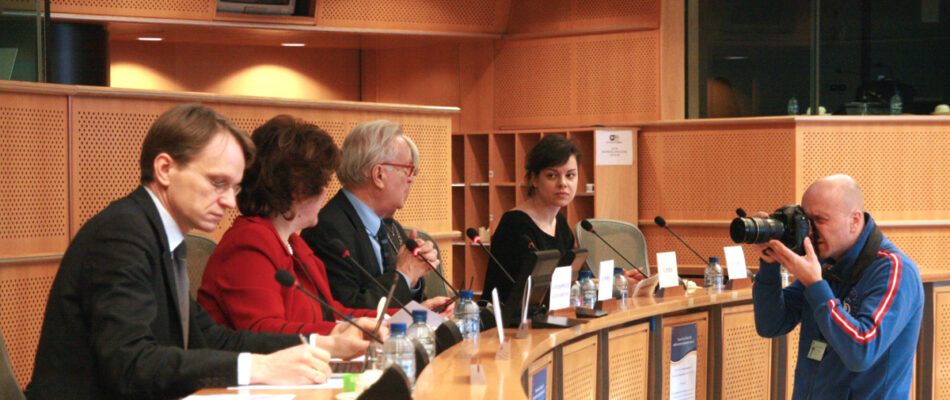
Education should be protected from austerity
BRUSSELS – The European Students’ Union (ESU) welcomes the idea of making 2013 a European Year of Citizens and urges decision-makers to reflect on how their policies affect societies in Europe.
“EU citizens enjoy a number of rights, but the most important one is their voting right. We think it is crucial that people tell the Members of the European Parliament and heads of national governments how their decisions affect daily lives. Harsh austerity measures can damage the social structures and trust in democratic institutions that are needed in order to drive Europe forward,” says Karina Ufert, ESU’s Chairperson.
The European Year of Citizens comes at a groundbreaking time, as a Eurydice report published in March confirmed that national budgets for education do not enjoy a special protection from austerity measures, despite the ambitious targets set in the EU2020 strategy that were endorsed by the Member States earlier. As an example, the budget for tertiary and adult education was cut by 30.8 per cent in Cyprus in 2012. The Cypriot government has also foreseen further cuts to education in the coming years, including human resources.
The regional gap
A big regional divide exists between countries that are forced to cut the budget for education the most and those that are able to shelter it. Countries in Southern- and Eastern Europe have had to cut the most but they are also among the ones that have been hit hard by the financial crisis. While the countries have to enforce a strict austerity policy and criteria set by the European Union (EU) and the International Monetary Fund (IMF) in many cases, budgets for education and training seem to be an easy target. Overall, a vast majority of EU countries spends less than two per cent of gross domestic product on higher education and some significantly less. Severe linear budget cuts can therefore have very serious consequences for the working environment of higher education institutions and on students.
The Europe 2020 strategy enlists five main priorities for employment, research and development, climate change and energy sustainability, education and fighting poverty and social exclusion. Based on this strategy, the EU wants to reduce the rates of early school leaving below ten per cent and make forty per cent of people aged 30 to 34 years complete third level education before the year 2020.
?We are concerned that the EU will be set astray from its policy for inclusive growth if too much emphasis will be placed on implementing flat budget cuts. The EU had already recognised how important education is to support a long-term economic growth. A strong and inclusive education system is the foundation of prosperity, to sustain innovative measures and a sturdy base for knowledge capacity,” says Ufert.
Education supports a sustainable growth
ESU disagrees with the opinion of the European Commission, which believes that the current fiscal targets are the best way to support sustainable economic growth and employment opportunities. In the case of Portugal, the government predicts hard budget cuts this year where education will not be spared.
“We want all European institutions onboard immediately to change the focus of this austerity policy. If the EU does not take enough care it may in fact go against its very own goals. An inclusive growth has to protect those sectors of society that are able to bring the society forward. Therefore, investments in education and training should be excluded from those deficit targets. Education is a human right and that should be our demand to the EU and especially the Eurogroup in this European Year of Citizens,” says Ufert.

A panel on the European Year of Citizens was organised by the Antigoni Papadopoulou, a Member of the European Parliament, on 9 April where Karina Ufert, Chairperson of the European Students’ Union, was a keynote speaker.

Antigoni Papadopoulou is from Cyprus that has recently experienced extreme budget cuts in higher education.
— END —
For more information, please contact:
Karina Ufert, ESU Chairperson: +32/473.669.892 // karina@esu-online.org or Robert Hlynur Baldursson, ESU Communications Manager: +32/473.669.894 // robert@esu-online.org

The European Students’ Union, headquartered in Brussels, is the umbrella organisation of 47 national unions of students from 39 European countries. ESU represents and promotes the educational, social, economical and cultural interests of students at the European level. Through its member unions, ESU represents over 11 million students in Europe. To find out more about ESU, follow us on Twitter @ESUtwt, check out or Facebook page or visit www.esu-online.org. ESU celebrates its 30th anniversary in 2012.
